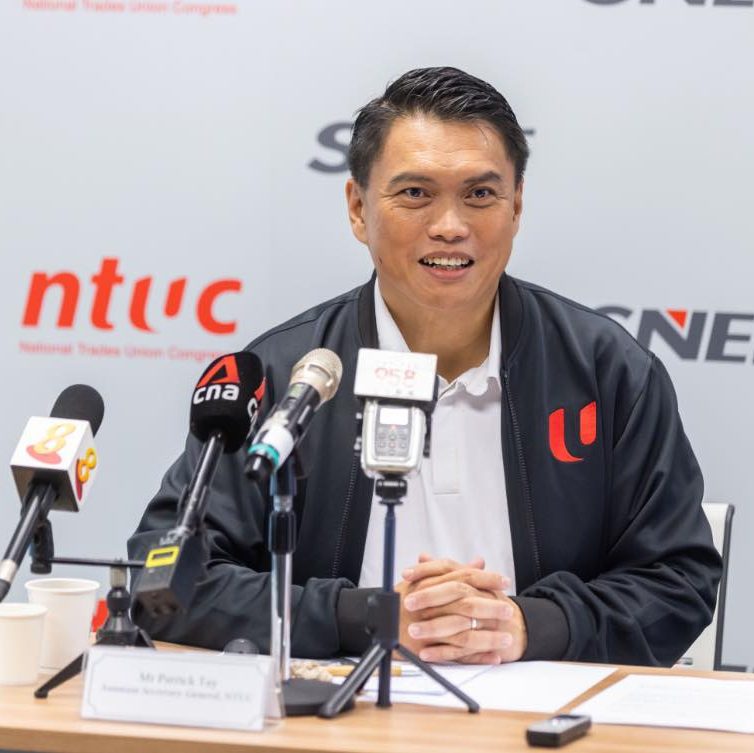In a city as dynamic as Singapore, where work often feels like a second home, fairness at the workplace is not just a legal concept – it’s about building trust, respect, and opportunity for all. With the introduction of the Workplace Fairness Bill, our nation takes a major step towards ensuring that every worker, whether you are climbing the corporate ladder or working your dream start-up gig, is treated with the dignity they deserve.
Workplace Fairness Bill – Why It Hits Close to Home
Picture this: your uncle has been job-hunting for months but keeps hearing, “You may be too experienced for this role.” Or your cousin has worked long hours to prove herself in the Tech sector, only to find out a less experienced candidate with “better connections” or a lower salary ask got the promotion. Sadly, these aren’t uncommon tales in Singapore’s fast-paced job market.
In fact, 67% of mature professionals in their 40s and beyond cited age bias as a major barrier in their job search. Whether it is nationality, age, gender, or caregiving duties, unfair treatment can derail careers and dampen aspirations. The Workplace Fairness Bill aims to change that by turning fair hiring and employment practices from a hope into a right.
Workplace Fairness Bill – 5 Things You Need to Know
What makes this legislation a game-changer? Here’s a breakdown of the five key aspects, as explained by Patrick Tay, MP for Pioneer SMC who is also Assistant Secretary-General at National Trades Union Congress (NTUC):
1. Coverage
The Bill aims to stop discrimination based on age, nationality, race, gender, or family responsibilities. But does it cover everyone? Patrick highlights that freelancers, platform workers, and outsourced staff may still be vulnerable to unfair treatment.
Imagine a photographer who regularly freelances for events but starts getting fewer jobs after clients assume they may be “too old” to keep up with fast-paced shoots or a freelance graphic designer who receives fewer projects because clients assume that they are less committed to deliver after they post about taking care of his or her parents who was recently diagnosed with dementia.
Patrick believes these groups should also be protected, and he calls for regular updates to the Bill to make sure it keeps up with new work trends. After all, fairness shouldn’t depend on the type of contract you have.
2. Clarity
Sometimes discrimination is obvious – like a job ad that says, “Fresh grads only.” But what about trickier cases? For example, if a company says a role requires someone fluent in a certain language but the job doesn’t need it – is that fair?
The Bill provides clearer guidelines to tackle these grey areas. It also covers unwritten policies like verbal instructions that subtly favour one type of candidate. Patrick believes giving concrete examples of what is and isn’t acceptable will help both employees and employers stay on the same page.
This means fewer misunderstandings and more confidence when it comes to calling out unfair treatment or improving hiring practices.
3. Communication
Laws can’t make a difference if people don’t know what they mean. That’s why spreading the word is crucial. Imagine an easy-to-read guide or short video that breaks down how the Bill protects you, or an FAQ page that answers common questions, like “Can my boss ask me about my age in an interview?”
Patrick suggests having HR workshops, online resources, and even printed pocket guides to make things simple and accessible. This way, everyone – from fresh graduates to senior managers—knows what fairness at work looks like and how to protect it.
Good communication ensures employees feel empowered to speak up, and companies know how to do the right thing.
4. Capability
Ensuring fairness at work takes more than good intentions – it requires the right skills. To make the Workplace Fairness Bill effective, HR professionals need to be well-equipped with the knowledge to handle workplace issues fairly and confidently.
One way to achieve this is by strengthening the Institute for Human Resource Professionals (IHRP) certification, which sets the standard for HR excellence. Patrick has suggested that HR certification be updated to include training on the Workplace Fairness Bill and even recommended making it mandatory for companies that hire foreign manpower. By doing so, HR teams across all industries will be better prepared to create inclusive and fair workplaces.
5. Complement
Even with the Bill in place, many people might still feel nervous about reporting unfair treatment – fearing they will be labelled “difficult” or left out of key projects. The Bill includes safeguards to prevent retaliation, but workplace culture plays a huge part too.
Patrick believes companies should go beyond policies and create safe spaces where employees can voice concerns. This could be through mentorship programmes, open-door policies, or having trusted union leaders who can support workers.
When speaking up feels safe and supported, fairness becomes more than just a policy – it becomes part of the culture.
Workplace Fairness Bill – Real Stories, Real Change
Beyond the legalese, the Bill is about real people and real lives. Patrick recalls meeting countless Singaporeans who shared stories of how discrimination left them feeling powerless. Common complaints included being passed over for roles due to age or assumptions about their family commitments. The Bill aims to give these individuals a voice and empower them with legal recourse.
One significant feature of the Bill is that it protects employees from the interview stage all the way to retrenchment or dismissal. For example, job applicants can now push back if they are asked about age or marital status when it isn’t relevant to the job. The Bill also ensures that anyone raising concerns cannot be targeted with unfair dismissal or contract changes.
During his ground engagements, Patrick also realised that outsourced workers and freelancers – including platform workers are an underserved segment in this space. He envisions that they should similarly be protected against discrimination in the course of their work. Whether it’s a freelancer who faces bias in project selection or a gig worker subjected to unfair treatment, ensuring fairness for all types of workers will be a vital consideration as Singapore’s labour market continues to evolve.
Workplace Fairness Bill – What This Means For Future Workforce
Singapore’s workforce is diverse – just take a look around your MRT ride in the morning. The good mix of office, F&B, retail, healthcare professionals and others reflects how our career pathways are constantly evolving. The Bill recognises that no one should feel that they have fewer opportunities just because they don’t fit a certain “ideal candidate” mould.
The legislation also highlights the importance of inclusivity as our workforce grows older. Companies are encouraged to embrace mature professionals for their experience and know-how rather than seeing age as a drawback.
From Pantry To Boardroom: How You Can Play a Role
We all have a role to play in fostering fairness. Whether it’s encouraging inclusive hiring or speaking up when you notice bias, small actions can lead to bigger cultural shifts. Here’s a thought: the next time you are at the pantry discussing policies or projects over kopi, bring up the idea of open communication about career progression. Simple conversations can spark important changes.
If you are in a leadership role, consider implementing mentorship programmes for employees who may feel sidelined. If you are just starting your career, educate yourself on your rights so that you can make informed decisions if faced with challenges.
A Nation Where Fairness Is a Core Value
Fairness at work goes beyond avoiding discrimination – it’s about creating spaces where people feel empowered to contribute their best without worrying about bias. This Bill marks a new chapter in Singapore’s commitment to being not just a productive nation but also a fair and inclusive one.
As Patrick puts it, “True progress requires a collective commitment to check our own biases at work, practice inclusion, and speak up when we spot that something is not right.”
Whether you are working from a CBD office or running your own gig business, the Workplace Fairness Bill is a reminder that everyone deserves a seat at the table. Fairness at work shouldn’t be a bonus—it should be the norm.














